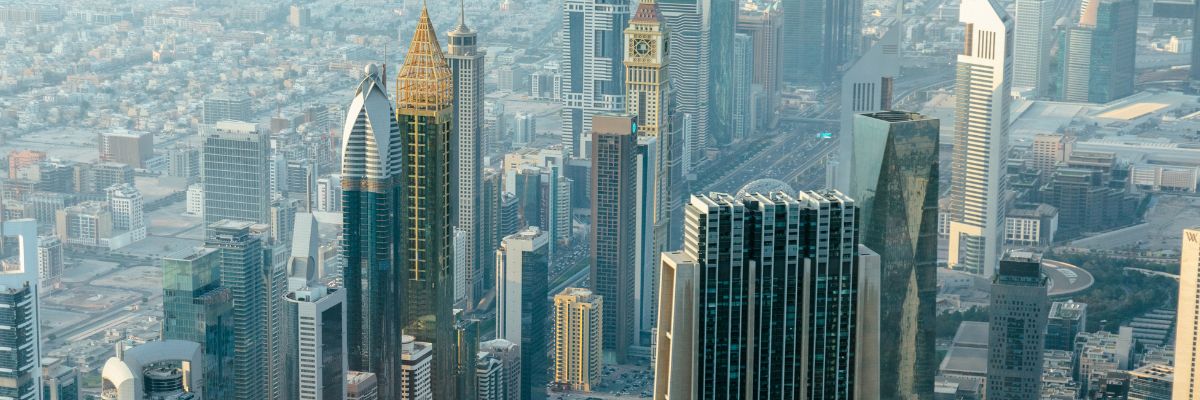Corporate Liquidation in Free Zones of UAE
Freezone Company Liquidation: The liquidation or dissolution of a company refers to the complete cessation of its operations, followed by the allocation of its remaining assets and properties to creditors and shareholders. In the United Arab Emirates (UAE), particularly within its Free Zones, this is a structured procedure that business owners are obliged to follow in the event of shutting down their company.

Adhering to specific protocols is essential for a smooth corporate liquidation process in Dubai and other Free Zones. Our team is adept at guiding you through this intricate procedure, also referred to as corporate deregistration.
Criteria for Business Liquidation in UAE
To successfully liquidate a business entity in the UAE, there are certain prerequisites that must be met. Although these requirements may vary from one Free Zone to another, they generally remain consistent across the board. We offer expert assistance to streamline this challenging task across all Free Zones in the UAE.
Understanding Corporate Liquidation
Corporate Liquidation occurs when a company burdened with debts ceases its operations and disposes of its assets to settle outstanding obligations and liabilities. This decision is reached when it becomes apparent that the company is no longer viable for continued operation. Reasons for this may vary, including but not limited to, insolvency (usually the primary factor), an unwillingness to continue business, among others.
In the unfortunate event that a company becomes insolvent, a liquidator is appointed to manage the asset liquidation process. This involves selling off the company’s assets to settle both internal and external debts. Once all debts are settled, any remaining surplus is distributed among the shareholders of the company.
Role of the Liquidator
A liquidator is a professionally qualified individual appointed to oversee the dissolution of a business, effectively winding it up. This individual is responsible for selling off assets to settle all outstanding debts, ensuring a lawful and orderly closure of the company.
By understanding and abiding by these principles and procedures, corporate liquidation in the UAE’s Free Zones can be conducted in a structured and efficient manner, minimizing risks and complications. We are committed to supporting you throughout this complex process, providing expert guidance every step of the way.
Types of Liquidation Procedures for Limited Companies
The process of liquidating a limited company can be categorized into three primary methods, each requiring the expertise of a qualified liquidator. These are: Creditors’ Voluntary Liquidation (CVL), Members’ Voluntary Liquidation (MVL), and Compulsory Liquidation. Below is a comprehensive overview of each type:
1. Creditors’ Voluntary Liquidation (CVL):
Creditors’ Voluntary Liquidation is initiated through a shareholders’ resolution and is applicable to companies that are financially insolvent. In this scenario, the company’s directors preemptively commence liquidation proceedings to avoid legal ramifications or forced dissolution. Essentially, the company takes the initiative to declare its insolvency before creditors can initiate legal action against it.
2. Members’ Voluntary Liquidation (MVL):
Members’ Voluntary Liquidation is a structured process aimed at winding up the operations of a solvent company. A company is considered solvent when it possesses sufficient assets to cover its liabilities and can fulfill all its financial obligations.
3. Compulsory Liquidation:
Compulsory Liquidation is often instigated by a creditor through legal channels, typically by obtaining a court order. This method is employed when a company is unable to meet its financial obligations and offers the creditor a formalized process to dissolve the business.
Prerequisites for Free Zone Company Liquidation in Dubai
The liquidation of a Free Zone Company in Dubai is subject to specific procedures depending on the jurisdiction within which the business operates. Below are the essential steps and requirements that entrepreneurs should adhere to for a seamless liquidation process in the United Arab Emirates:
- The company must be free of any outstanding liabilities.
- All active visas associated with the company must be revoked.
- All corporate bank accounts must be closed.
- During the liquidation phase, any remaining assets must either be distributed among shareholders or sold to a third party.
- All dues and fees payable to the Free Zone Authority must be settled.
- Immigration approval must be secured from the Free Zone Authority.
- A formal liquidation resolution should be drafted, and a licensed liquidator must be appointed to manage the process.
- A concluding Audit Report or Liquidation Letter must be prepared by the liquidator, validating that the company has neither assets nor outstanding liabilities.
By diligently following these steps, entrepreneurs can ensure a smooth and compliant liquidation process within the UAE’s Free Zone jurisdiction.
Procedures for Liquidating a Free Zone Company in the UAE
While each free zone in the UAE may have distinct liquidation guidelines, there are common steps involved in the process. Below are the essential stages for a seamless liquidation of a Free Zone company in the UAE.
Step 1: Obtain a Signed Board or Shareholder Resolution
A signed Board or Shareholder Resolution is mandatory, indicating unanimous agreement among all partners to dissolve the company. Upon submission of this formal document, all powers and responsibilities vested in the company directors will cease.
Step 2: Official Notification to the Free Zone Authority
The concerned Free Zone Authority should be formally notified of the company’s intention to dissolve. This notification must include the original signed board resolution. In response, the authority will issue an invoice to confirm your cancellation request. Once the invoice is settled, the authority will initiate the legal proceedings for dissolution.
Step 3: NOCs and Clearances
All utilities (e.g., DEWA) and communication services (e.g., Etisalat) registered under the company’s name must be terminated. Required clearance letters must be obtained, and any commercial spaces in the company’s name must also be vacated and cleared.
Step 4: Address Employees and Sponsorships
All visas and work permits related to employees and dependents must be revoked. Bear in mind that, as per UAE labor laws, companies are obligated to provide employees with a two-month paid notice prior to termination in the event of a company closure.
Step 5: Issue a Formal Public Announcement
A 15-day formal notification must be published in an Arabic newspaper or gazette, announcing the company’s dissolution. Following this, if no claims are filed or are duly resolved, the necessary documents can be submitted to the Free Zone Authority for official closure confirmation.
Step 6: Receive Termination Confirmation
Upon fulfilling the above requirements, the Free Zone Authority will issue the company termination certificate. Note that the official closure of a Free Zone company may take up to two months.
Step 7: Closure of Business Bank Accounts
Once the termination certificate is issued, it can be presented to the bank for the closure of corporate accounts. Any remaining funds will be distributed among the former partners as stipulated in the board resolution.
Expected Duration for Freezone Company Liquidation
Provided all procedures and requirements are met, the liquidation process can generally be completed within 45 to 50 days.
Choose a Trusted Liquidation Partner: MP Elites Consulting
If you are considering liquidating your Free Zone Company in the UAE, MP Elites Consulting is a reputable liquidation service provider. We offer end-to-end liquidation services that are fully compliant with UAE Company Law. With years of experience in the field, our expert liquidators will manage all crucial documentation, clearance certificates, utility and visa cancellations, ensuring a smooth and hassle-free liquidation process. Contact us today for a complimentary initial consultation.




